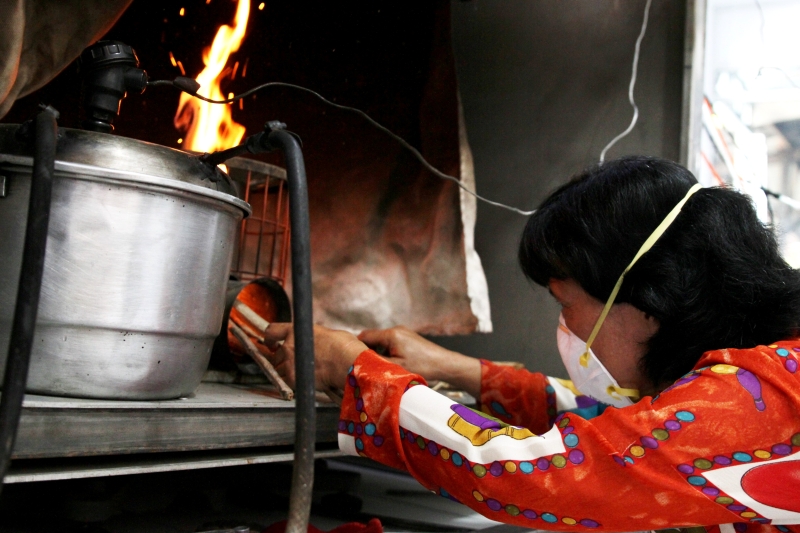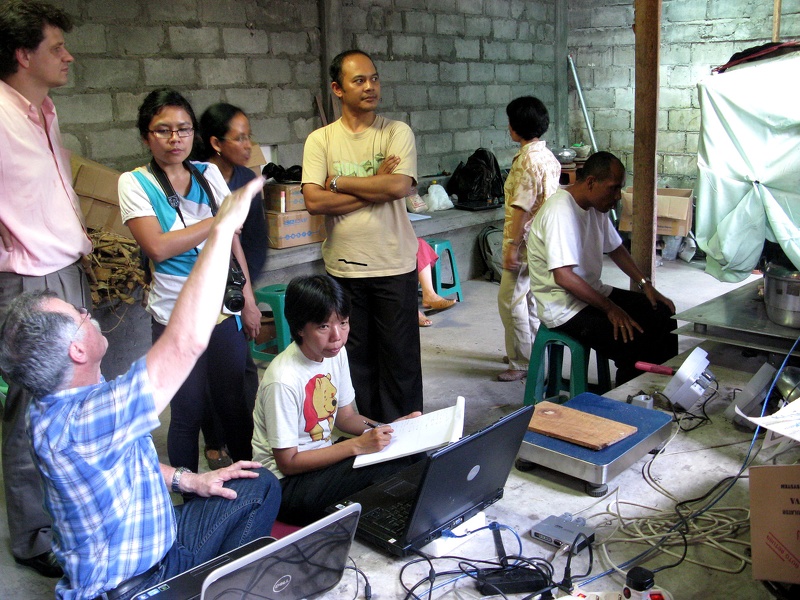Getting biomass energy on the government agenda
Before elaborating on GERES experience as ecosystem facilitator and advocate for IB using biomass energy, we shall start by the reasons why we believe biomass energy is a crucial sector to invest in. That's specifically the messages we convene to the government representatives we are working with.
A Valuable & Profitable Sector for the Base of the Pyramid (BoP)
Though mostly informal, the biomass sector has a high economic value and contributes significantly to local employment, either through the value chains related to solid biomass energy (timber, charcoal production and distribution, stoves production and distribution) or by being a necessary input in numerous small economic activities, such as food processing, agro-processing, ceramic and brick making…
Creating Positive Social Impacts & Improving Women’s Safety and Livelihoods
Improved cookstove initiatives have demonstrated their social added value and ability to create positive social impacts, such as developing skill sets, creating employment opportunities, inspiring entrepreneurship and stimulating local markets.

Once you have national governments on board, which role should they play in sustaining their national biomass energy source and how NGOs can help them to endorse this role for the benefit of IB involved in the sector?
As partner of the Clean Stove Initiative (CSI) pilot led by the Word Bank in Central Java and Nusa Tenggara Timur, the Government of Indonesia (GoI) supported IBs engaged in the dissemination of improved and advanced biomass cookstoves through the implementation of an innovative Result Based Financing (RBF) scheme, subsidizing devices passing contextualized laboratory tests, based on a scoring system linked to efficiency and emissions. The cleaner and more efficient the cookstove was, the bigger the subsidy was for the IB, an interesting innovation trigger for the IB.

As partner INGO, we acted at different level based on our expertise and thanks to the financial support of the Agence Francaise de Développement (AFD) and the World Bank:
- we supported the R&D so that the producers' stoves pass the test ;
- we identified IBs to link them with the small producers of informal sector : we helped them to become the "foster parent" of the producers by training them to ensure the quality control and assurance of the stoves ;
- we built capacities of the local agency in charge of implementing the Monitoring & Verification system linked with the Result Based Financing ;
- we supported the Government of Indonesia in the procurement of the equipment for the national laboratory facility and in the training of the laboratory team.
All CSI stakeholders, included GoI and IBs were regularly kept informed on pilot' progress and consulted for project major adjustment needs. The GoI hired a consultant to assess the pilot and its replicability at larger scale. The achievements were deemed significant enough by the government counterparts to envision a scale-up phase involving domestic cooking energy budget from 2018, with a willingness to align CSI contextualized testing protocol with its Standards National Institute. The endorsement of the TSHE Indonesia label by the GoI and its supports in communicating the program to get IBs on board and raise awareness of the population on cleaner cooking has clearly contributed to the success of the pilot (9700 stoves financed under the RBF) and has been identified as a key aspect to strengthen for the upscale phase.
As Caroline Ashley's mentioned in a previous post: regulations that raise standards can be critical for growth of inclusive businesses as they help focus finance and attention on inclusive business ; subsidized competition, when shifted to the right product, can increase IB competitiveness.
We also met situations where regulatory environments were an impediment for inclusive business. That was the case in the same Indonesian program: importation regulations prevented internationally produced devices to be competitive. This is also the case in Morocco, where standards are so high that they become impossible for the manufacturers to meet. Advocacy work requires relentless efforts where union is strength and evidence based results are great convincing tools. Well, that's NGOs' DNA! We are currently working with the Government of Myanmar to set up their national standards for improved cookstoves. Who's in ?
Why we believe biomass energy is a crucial sector to invest in
Because it is relevant energy for households in the least developing countries. Today, an estimated 2.7 billion people rely on biomass for cooking and its use will remain significant over the next few decades. For these populations, solid biomass including wood, charcoal and agricultural residue, has been essential for meeting basic living needs. In many areas of the developing world, biomass energy is also essential to sustain productive activities, especially for MSMEs. In Sub-Saharan Africa, solid biomass currently accounts for 70% of primary energy uses (IEA, 2014). Whatever the trend, it will still bear a very large share in the SSA energy mix for the many years to come.
For the world’s poorest populations improved access to so-called “advanced” fuels (LPG, biofuels, electricity) are often unavailable, inaccessible or too costly. We believe that going directly to advanced fuels will exclude the poorest, creating a larger energy gap in developing countries. Therefore, in order to reach those at the Base of the Pyramid (BoP) we advocate for more efficient and cleaner use of biomass energy as a complement to other measures that facilitate access to electricity and LPG.
A Sustainable and Modern Energy through Technological Innovation
LPG is a more efficient cooking fuel with higher potential to reduce Household Air Pollution (HAP) than biomass energy, true. But technological innovation can drive change and locally relevant and renewable energy can be used in a more sustainable and modern way. The biomass energy itself is not the issue, it is rather the inefficient transformation and use of solid biomass, coupled with unsustainable forest management practices, which creates adverse effects on human health and the environment.

This blog is a part of the October 2017 series on NGOs in inclusive business, in partnership with endeva.
Read the full series for insights on what kind of roles NGOs have carved out for themselves, either as partners of companies, as intermediaries, investors, or even as entrepreneurs and their lessons learnt in doing so.